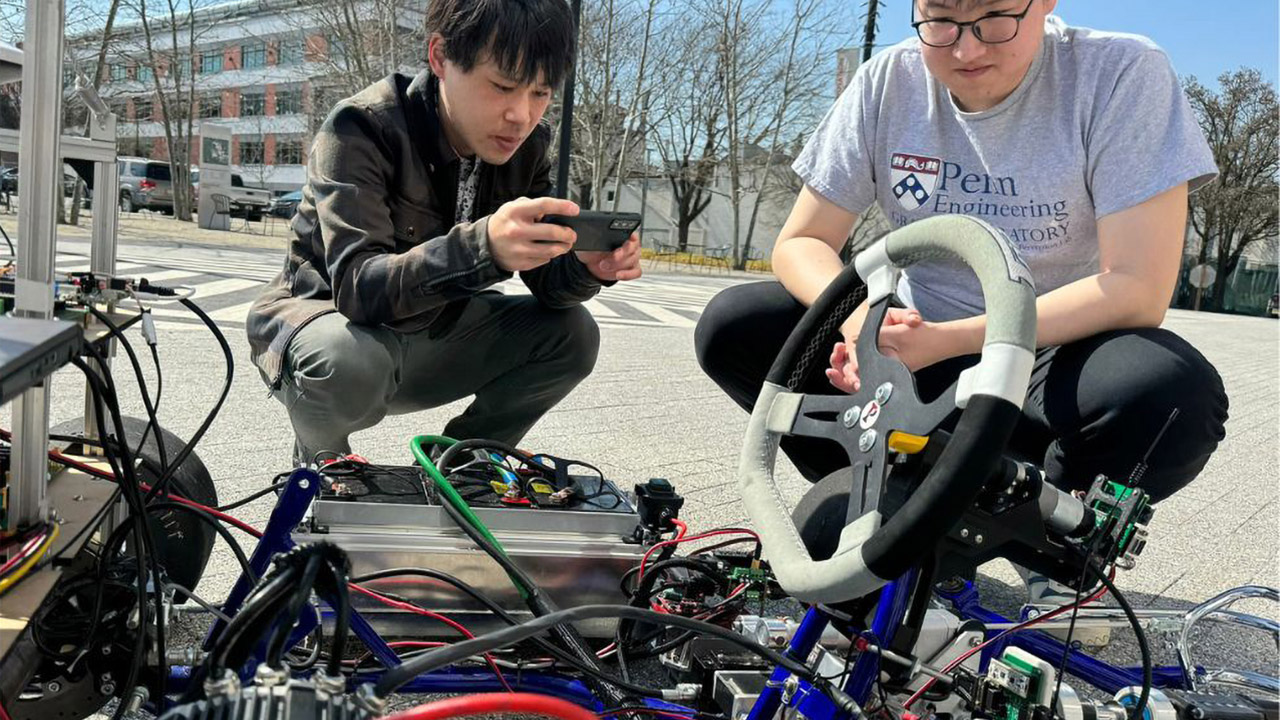
Photo credit: Denise Henhoeffer
Penn Engineering students unveil AV4EV, a full-sized electric autonomous go-kart. Not only can this vehicle support a flexible range of sensing and computing, but it can also carry a human driver to collect additional data.
To make AV4EV a reality, the team had to design and implement a full autonomy stack, including perception, planning, as well as control algorithms that enable the go-kart to safely navigate complex environments. As for mapping those environments, it relies on the Monte Carlo method, which allows the go-kart to accurately figure out its position and continuously refines its position estimates by comparing predicted sensor readings with the actual readings.
- Extreme Speed: Race at a thrilling 26.7 mph in Race Mode, delivering an electrifying go-karting experience that leaves you exhilarated and hungry for...
- Versatile Riding Modes: Personalize your ride with ECO, Sport, Race, and Manual Modes, providing a diverse range of speed and control options to suit...
- Long-lasting Adventure: Extend your fun with a typical range of 15.5 miles, ensuring hours of non-stop excitement and enjoyment on the track without...

Our go-kart platform bridges the gap between RC cars and full-scale vehicles, providing an effective solution for autonomous vehicle research. Right now, I’m working on integrating the camera data with the LIDAR data and getting high-definition maps of the surroundings so that we know what is around us,” said Rahul Mangharam, Student at Penn’s School of Engineering and Applied Science.










